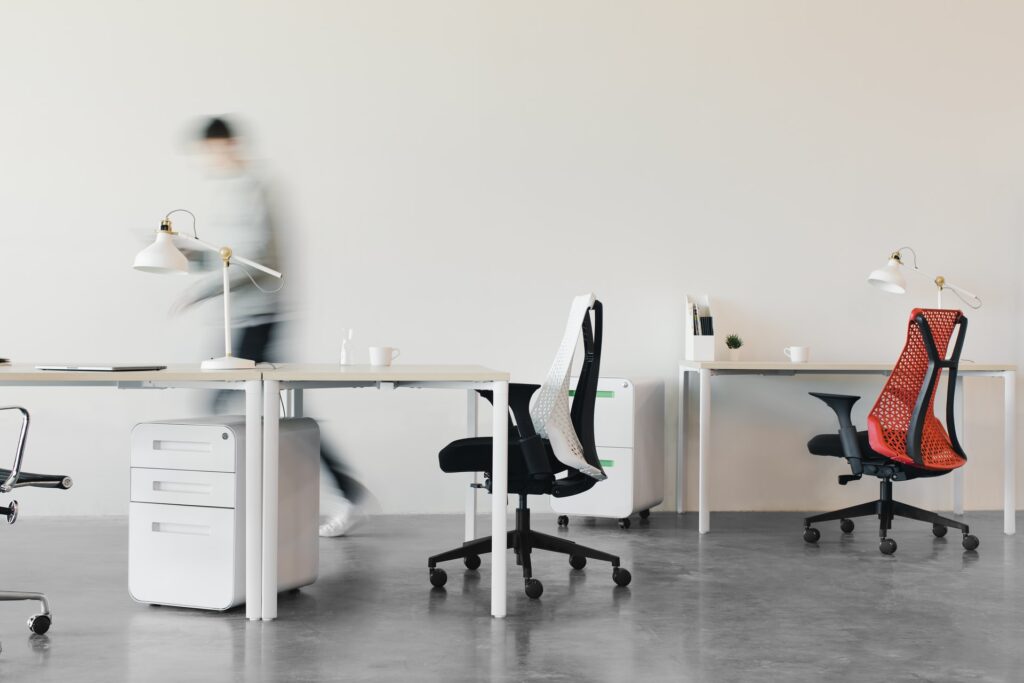It’s not good to be busy. But it’s good to be productive.
Here’s the difference…
Busy: having lots to do
Productive: having positive results
Instead of measuring our daily success by what we have written on our to do list, we ought to be focussing on what we can realistically achieve within that day. Remember, there’s a difference between working harder and working smarter.
Multitasking isn’t always the best way forward
In some cases, having the ability to multitask can be beneficial. But when you start to do several things at once just to get through the day, it becomes a problem.
Multitasking can hinder our ability to focus on the activity in hand. It damages our ability to recall information and complete our tasks as effectively and accurately. There’s also evidence to suggest that multitasking physically shrinks your brain – scary stuff.
Tools and tips that help increase productivity might be useful. But they should never be used to get a job done quickly to an “it’ll do” standard. You should always aim to complete tasks to the best of your ability. And if that takes a little more time, then that’s the way it should be.
Are you always on?
Breaking off a task to reply to emails, chats and phone calls will undoubtedly have an impact on your productivity. It’s great that technology has helped us to all keep in the loop, but you shouldn’t be expected to be ‘on’ 24/7. If you’re focussing on a particular task, book some time out in your diary and be mindful of distractions. While it’s good practise to focus on tasks and ensure completion, there are roles where you must be mindful of any urgent requests that may land in your inbox. To make sure you don’t miss an important customer email request, make sure to check your inbox every fifteen or twenty minutes rather than constantly looking at emails that pop up and take you away from the completing the task at hand.
You shouldn’t squeeze so much into your day that you become overwhelmed or unable to focus on the most important projects. Remember, you don’t receive praise or respect for cramming in tasks, meetings and projects. You achieve based on your results – and how thorough and effective your execution is.
Call it out
Human nature can be to see weakness in asking for help and or sharing best practice. If you constantly feel like you are falling behind your peers, then it may be a good idea to spend some time shadowing those colleagues who always seem up to date. Ask yourself “what are they doing that I’m not”. Go sit with them and see first-hand how they are managing their workload. There’s no shame in doing this – there are always things we can learn! If you feel your workload is in excess of your peers, link in with your line manager.
The negative impact of being busy
Naturally, we don’t associate busyness with happy, content emotions. Being busy is synonymous with feeling rushed, stressed or overloaded. Our mindset and the way we interpret our lifestyles has an impact on our bodies physically. ‘Busy’ signals from our brain could lead to our body reacting negatively. That could translate physically into an increased heart rate, increase in stress hormones in our system and even shallow breathing and feelings of anxiety.
Are you too busy?
Once you start cancelling plans with friends and family due to an overload of work, you need to start re-evaluating your workload. Your social health has an impact on mental and physical health, so it’s important you maintain a good level of social wellbeing by connecting with the people close to you. This should not be sacrificed because you feel too busy.
How to stop being ‘busy’ and start being productive
You’re either too busy because you’ve got too much to do, or you’re struggling to be productive. It’s time to reflect on our priorities. Write out a list of your daily tasks, in order of importance. You’ll soon work out how what’s urgent and what can wait for a day or two. It’s likely you’ll have to start saying communicating more effectively, such as asking for a deadline for completion which may help you to prioritise your work. Manage your colleague or customer’s expectations, giving a reasonable timescale for completion. If you explain your reasoning and demonstrate that the quality of your work will improve with more time to dedicate to a task, you should be able to get most people on side.
Try not to get distracted. The key here is to learn how you work most effectively. If you find you can focus on a task better with background music, then get a playlist together. Some of us prefer to work in a quiet atmosphere. Others are indifferent. Find out what cheers you on and motivates you and adjust your working environment accordingly.
Be proud of your productivity
Don’t be proud of the list of things you have to do in the future. Instead, congratulate yourself when you’ve got through a particularly difficult task or conquered a full-on day with positivity. Feeling overwhelmed by things to do will actually hinder our ability to complete these tasks effectively.
Next time someone asks you ‘how’s your day been?’ don’t simply reply ‘busy’. Tell them it’s been productive.







